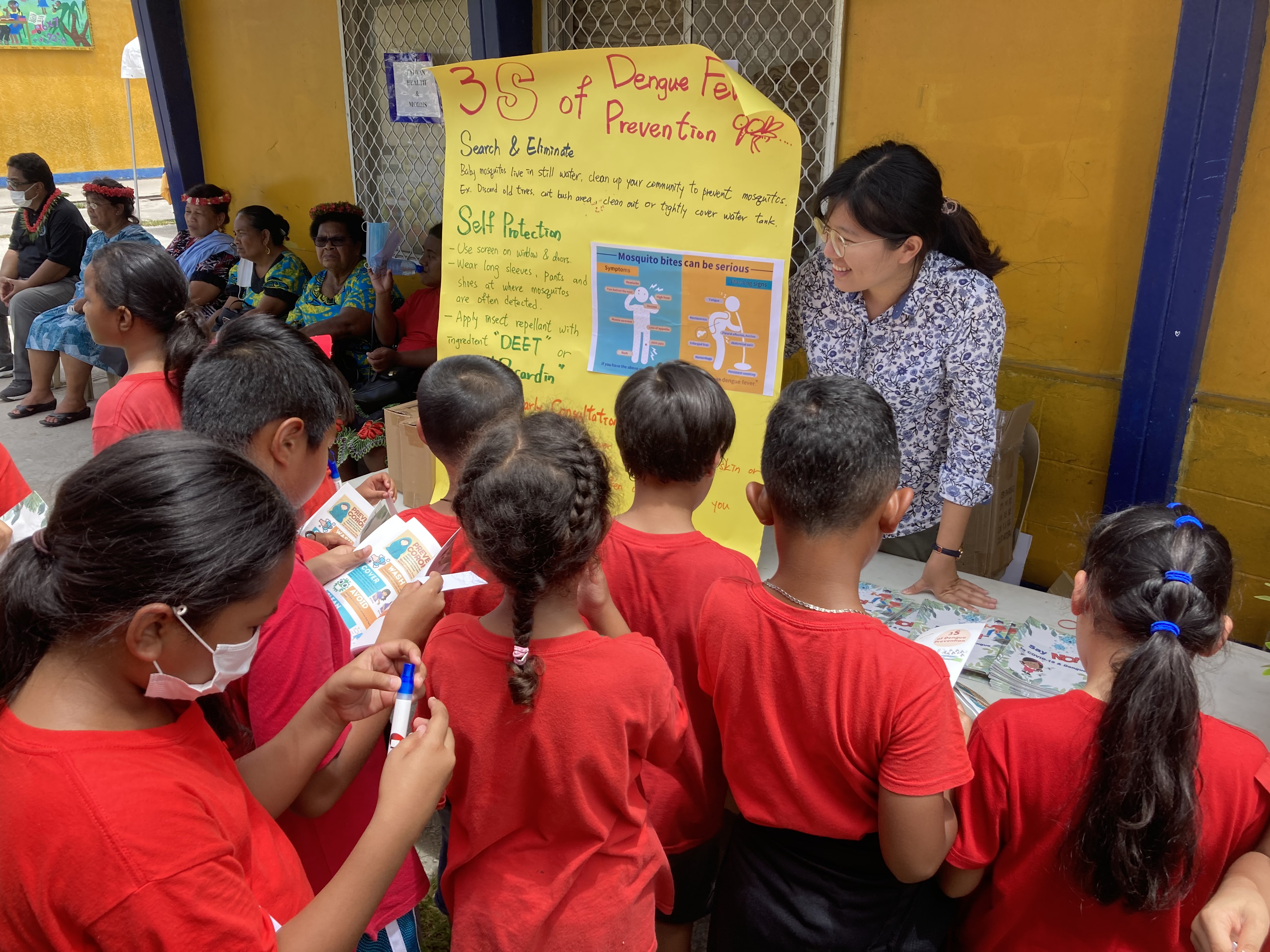Copyright © 2021. Taiwan International Health Action All rights reserved.
News Room
- 2024 year Press Release
- 2023 year Press Release
- 2022 year Press Release
- 2021 year Press Release
- 2020 year Press Release
- 2019 year Press Release
- 2018 year Press Release
- 2017 year Press Release
- 2016 year Press Release
- 2015 year Press Release
- 2014 year Press Release
- 2013 year Press Release
- 2012 year Press Release
- 2011 year Press Release
- 2010 year Press Release
- 2009 year Press Release
- 2008 year Press Release
- 2007 year Press Release
- 2006 year Press Release








Several necklace-like atolls scattered on the cerulean ocean, here is the Republic of the Marshall Islands (RMI), an island country composed of 29 atolls and five islands, lying across over two million square kilometers of the Pacific. Except for the two major atolls, Majuro and Kwajalein, residents in most islands still keep a traditional way of life, such as collecting breadfruit and catching fish for food and relying on rainwater collection for fresh water. Life is harsh, but the people of the RMI still share the “Iakwe spirit” of sanguinity and amicability as other Pacific Islanders do.
Taiwan Health Center in the Marshall Islands
Lacking medical resources in the RMI, the only two medical facilities available in the country are Majuro Hospital and Ebeye Hospital, which are located on the two major islands. Most doctors of the hospitals are foreign contractors, which often results in the instability of human resources, inadequacy of professional skills, and a lack of administrative management. However, the health care system of the country is too fragile for patients with diabetes and other non-communicable diseases, which accounts for nearly 30% of the adult population. The medical care capacity is also insufficient.
Since 2013, Shuang Ho Hospital has taken over the operation of the Taiwan Health Center Program in the RMI. The Hospital sent medical teams to Majuro Hospital for clinical services and operations according to local needs. Besides short-term medical missions, Shuang Ho Hospital expatriated a nurse to the RMI as the program coordinator and worked on public health programs, such as community-based screening for chronic diseases and promotion of healthy lifestyle and disease prevention, bringing medical assistance to the local schools and communities in depth and scope. Moreover, to cultivate its own medical talents in the RMI, the Taiwan Health Center assisted Majuro Hospital in setting up the medical education system and medical internship training program in 2017 for continuing medical training of the young medical graduates. After the internship training, Shuang Ho Hospital also provided those young doctors with the full specialty and sub-specialty training in Taiwan. Since 2017, the Program has successfully trained seven young Marshallese medical interns to become qualified physicians in Majuro Hospital.
Humanitarian Aid during the COVID-19 Pandemic
In 2020, the government of the RMI shut down its borders tightly to keep COVID-19 away. This iron hand policy successfully avoided the spread of the virus in the RMI but meanwhile stopped all international supports to the country. Being uncertain of the pandemic, a lot of international NGOs suspended their ongoing programs and evacuated volunteers and staffs from the RMI, which also made the Taiwan Health Center program face the unprecedented challenge when the supports from Taiwan’s medical teams and NGO partners were no longer available. To overcome these barriers, the Taiwan Health Center has created its services virtually by providing local doctors with online consultation on their sub-specialties and holding online training sessions regularly to make their skills and knowledge up-to-date, minimizing the impact of the pandemic to the Center.
At these difficult times, the Taiwan Health Center has cooperated with NGO partners to expand the public health programs to the outer islands of the RMI, including Jaluit, Ailuk, Ebon and Wotje atolls. In the past two years, the team had provided health education at schools and churches on the screening for diabetes and hypertension, healthy lifestyle and the importance of balanced diet. The team stayed in health dispensaries, community centers or local households for about a week, without water and electricity. This primitive lifestyle has also been a precious way to experience Marshallese culture.
Post-Pandemic Era
For just nearly two years of the COVID-19 pandemic, the world still could not foresee the end of it. All countries have written down their lessons learned from this global pandemic. Even though the RMI has remained COVID-free, people here all fully understand that lockdown cannot be a forever option. Yet, in the face of an uncertain future, whatever the option is for either Taiwan or the Marshall Islands, the only certain thing is that the Taiwan Health Center will continue to stand together with the RMI and fulfill the spirit of “Health for all, Taiwan can help”.